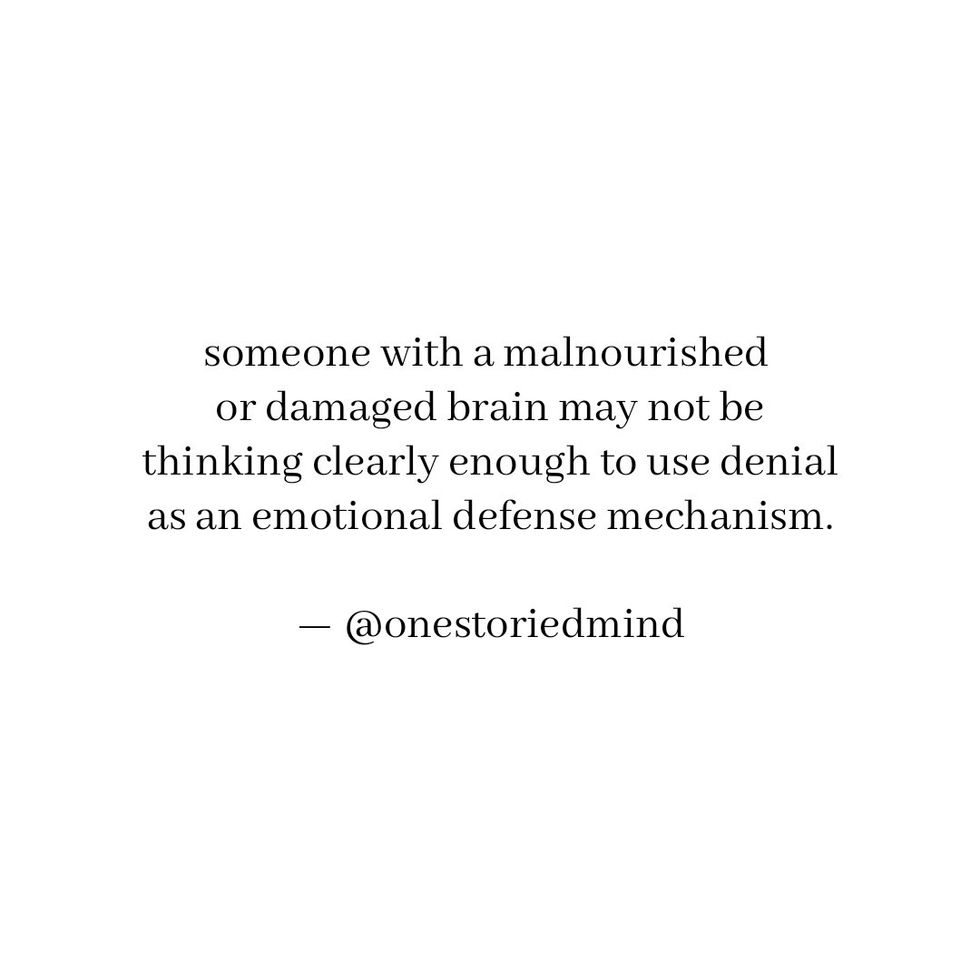perhaps one of the most disturbing symptoms of anorexia nervosa and other eating disorders, especially for family members and treatment professionals, is the patient's belief that they are not sick. the common consequence of not believing that they are sick is that they do not want to be okay.
in fact, a patient’s lack of concern for the problem has long been a defining characteristic of anorexia nervosa.
since 1873, Ernest-Charles Lasègue, a french doctor who was one of the first people to describe anorexia nervosa, wrote, “i do not suffer and i must be okay,” is the monotonous formula. clinical studies, as reported by Dr. Vandereycken, have reported that “denial of the disease” is present in up to 80% of anorexia nervosa patients surveyed. in some populations of anorexia nervosa patients, this percentage may be lower. in a study by Konstantakopoulos and colleagues, a subgroup of anorexia nervosa patients (24%) had severe impairment of intuition. they also found that patients with restrictive anorexia nervosa had poorer overall vision than patients with anorexia nervosa, subtype of compulsive purging.
the diagnostic criteria for anorexia nervosa include an “alteration in the way body weight or shape is experienced.” patients may be extremely emaciated, but believe they are overweight. the diagnostic and statistical manual of mental disorders, fifth edition (DSM-5), states, “people with anorexia nervosa often lack information or deny the problem.”
in earlier writings about anorexia nervosa, this lack of knowledge of the problem was often called denial, since it was first described when psychodynamic theories predominated. more recently, however, the condition has been renamed anosognosia. this term was originally used by neurologists to describe a neurological syndrome in which people with brain damage have a profound lack of awareness of a particular deficit. anosognosia, or lack of consciousness, has an anatomical basis and is caused by damage to the brain.
more recently, the term has also begun to be applied to psychiatric illnesses such as schizophrenia and bipolar disorder. brain imaging studies seem to indicate a brain connection between anosognosia and these conditions. the national alliance on mental illness (NAMI) reports that anosognosia affects 50% of people with schizophrenia and 40% of people with bipolar disorder, and is believed to be the main reason why patients with these disorders often don't take their medication.
applying the term anosognosia to anorexia nervosa makes sense because we know that the brain is affected by malnutrition. in a 2006 paper, Dr. Vanderycken wrote, “in many cases of anorexia nervosa, the striking indifference to wasting resembles the anosognosia described in neurological disorders.”
in 1997, Dr. Casper wrote: “the lack of concern about the potentially dangerous consequences of malnutrition suggests that alarming information may not be processed or may not be aware of it. someone with a malnourished or damaged brain may not be thinking clearly enough to use denial as an emotional defense mechanism.”
transcendence. seeing anorexia nervosa through the lens of anosognosia has significant ramifications. if an individual suffering from a serious mental illness with life-threatening complications does not believe that they are sick, it is unlikely that they will be receptive to treatment. this increases the potential risks of medical problems as well as a long course of illness. these individuals may be incapable of perception-oriented treatment, which was, until recently, a common treatment for anorexia nervosa. this is one reason why more intensive treatment, such as residential care, is often needed. it is also the reason that family-based treatment (FBT) may be more successful: in FBT, parents do behavioral weight lifting to restore a patient’s nutritional health.
anosognosia can be confusing for family members. if you are a loved one of someone with an eating disorder who doesn't seem to believe that they are sick or interested in recovery, recognize that you are not being defiant or resilient. they are more likely to be unable to understand. fortunately, motivation for recovery is not required if your loved one is a minor or if they are a young adult who is financially dependent. you can be assertive and insist on treatment for them.
Dr. Vandereycken writes that “communicating with someone who has an eating disorder, but denies that it is not easy.” — he suggests three strategies for loved ones:
• show support and concern (otherwise they will seem indifferent)
• express empathy and understanding
• tell the truth.
in short, anosognosia is a brain condition; it is not the same as denial. fortunately, the brain recovers with recovery and a return to a healthy weight. motivation and perception usually return in time for the individual to address the rest of their own recovery.
i wrote about this amazing subject inspired by and thanks to the amazing Tabitha Farrar. (in ig: @tabs_edrecoverycoach)
thank you for taking your time to read about this important subject.
if you need orientation, you can follow me and Tabitha; my ig account is on my bio. don’t give up.



















